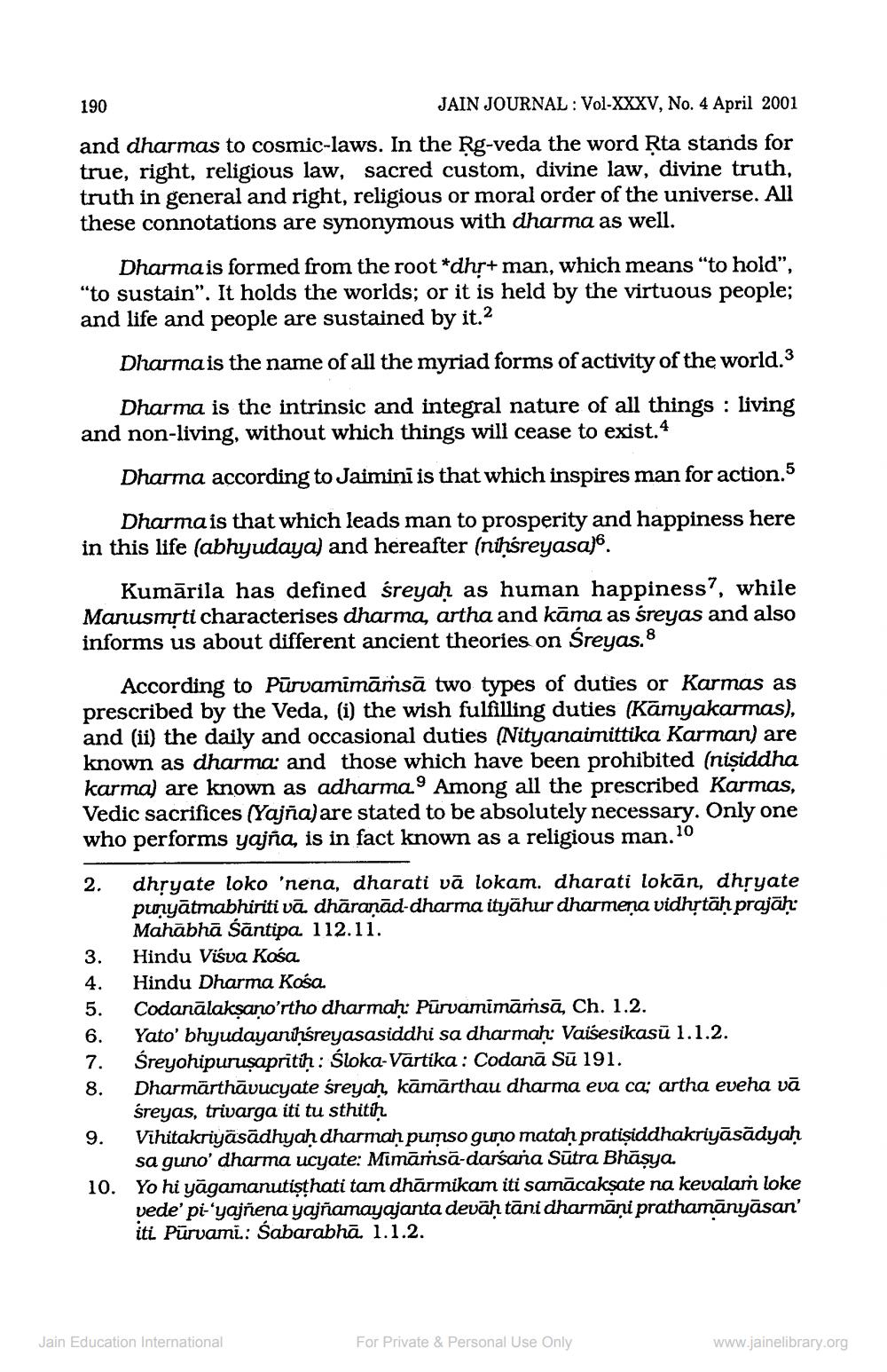________________
190
JAIN JOURNAL: Vol-XXXV, No. 4 April 2001
and dharmas to cosmic-laws. In the Rg-veda the word Rta stands for true, right, religious law, sacred custom, divine law, divine truth, truth in general and right, religious or moral order of the universe. All these connotations are synonymous with dharma as well.
Dharma is formed from the root *dhr+ man, which means “to hold”, "to sustain". It holds the worlds; or it is held by the virtuous people; and life and people are sustained by it.2
Dharma is the name of all the myriad forms of activity of the world.3
Dharma is the intrinsic and integral nature of all things : living and non-living, without which things will cease to exist.4
Dharma according to Jaiminī is that which inspires man for action.5
Dharma is that which leads man to prosperity and happiness here in this life (abhyudaya) and hereafter (nhsreyasa).
Kumārila has defined śreyah as human happiness?, while Manusmrti characterises dharma, artha and kāma as śreyas and also informs us about different ancient theories on Śreyas. 8
According to Purvamimāṁsā two types of duties or Karmas as prescribed by the Veda, (i) the wish fulfilling duties (Kamyakarmas), and (ii) the daily and occasional duties (Nityanaimittika Karman) are known as dharma: and those which have been prohibited (nisiddha karma) are known as adharma. Among all the prescribed Karmas, Vedic sacrifices (Yajña) are stated to be absolutely necessary. Only one who performs yajña, is in fact known as a religious man. 10
no
2. dhryate loko 'nena, dharati vā lokam. dharati lokān, dhryate
punyātmabhiriti vā. dhāranād-dharma ityāhur dharmena vidhrtäh prajāh: Mahabhā Santipa 112.11. Hindu Visva Kosa Hindu Dharma Kosa. Codanālaksano'rtho dharman: Pūrvamimāṁsā, Ch. 1.2. Yato' bhyudayanihśreyasasiddhi sa dharmah: Vaišesikasü 1.1.2. Śreyohipuruşapritiņ: Śloka-Vartika : Codanā Sū 191. Dharmärthāvucyate śreyaḥ, kāmārthau dharma eva ca; artha eveha vā śreyas, trivarga iti tu sthitiņ Vihitakriyāsādhyah dharmaḥ pumso guņo mataḥ pratişiddhakriyāsādyaḥ
sa guno' dharma ucyate: Mimāṁsā-darśana Sūtra Bhāsya. 10. Yo hi yāgamanutişthati tam dhārmikam iti samācakşate na kevalam loke
vede' pi-'yajñena yajñamayajanta devāḥ tāni dharmaņi prathamanyāsan' iti. Pūrvami.: Sabarabhā 1.1.2.
Jain Education International
For Private & Personal Use Only
www.jainelibrary.org




